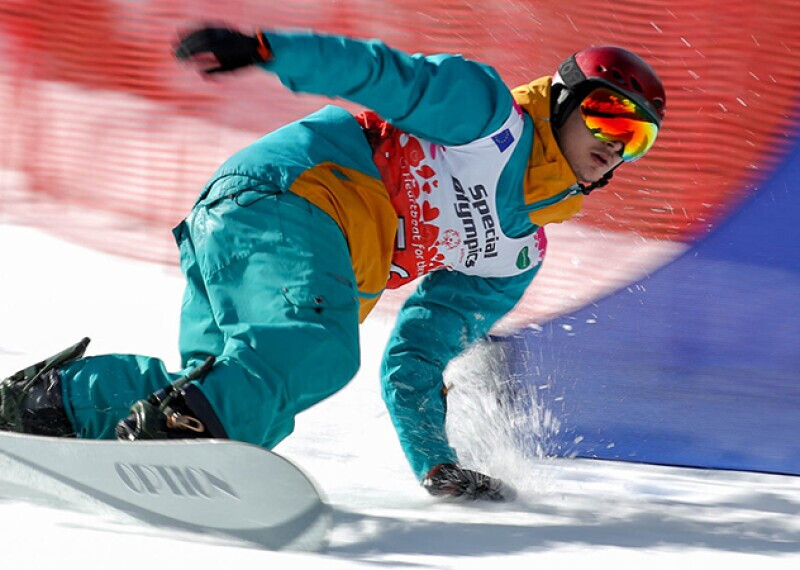
Turin, Italy – With a blend of excitement and determination, a team of 14 Australian athletes has arrived in Turin, Italy, ready to compete in the Special Olympics World Winter Games, which commence this weekend. The team, comprising individuals with intellectual disabilities, will showcase their skills in alpine skiing and snowboarding, aiming to inspire and achieve personal bests on the international stage.
Among the athletes making her debut is 31-year-old Lauren Kerjan, an alpine skier whose passion for the sport began at the age of four. "I'm very excited and ready to enjoy the experience," Kerjan shared, emphasizing the boost of confidence she feels when donning her racing suit, which she likens to a superhero costume. Kerjan qualified for the Games after a triumphant performance at the Australian National Championships last July.
The World Winter Games, a flagship event of the Special Olympics movement, will host approximately 1,500 athletes from 102 countries. Competitors will participate in eight sports, including alpine and cross-country skiing, DanceSport, figure skating, floorball, snowboarding, snowshoeing, and short track speed skating. Australia's contingent includes six women, highlighting the growing participation of female athletes in the Special Olympics.
Veteran snowboarder Craig Muhlbock, 40, is set to make his third appearance at the World Winter Games, a feat unmatched by any other member of the Australian team. Muhlbock, who has also represented Australia in football at the Summer Games, is determined to secure a gold medal this time around, having previously earned three silver medals in South Korea in 2013. "Hopefully, I get a medal, let's see how far I get," Muhlbock said, expressing his competitive spirit.
Peter Muhlbock, Craig's father and an assistant coach for the team, highlighted the inclusive nature of the Special Olympics. "What sets Special Olympics apart is that we invite athletes of all ages and all abilities to participate," he said. The focus for the Australian team is on personal improvement and enjoying the experience, rather than achieving a specific medal count.
However, the Australian athletes have faced unique challenges in preparing for the Winter Games. Unlike their counterparts from snow-rich nations, they have had to rely on alternative training methods during the Australian summer. Kerjan, for example, maintains her fitness through cardio exercises, while Muhlbock engages in football.
Financial constraints have also posed a hurdle for the athletes. Despite funding from Special Olympics Australia and the Australian Sports Commission, many athletes have had to self-fund portions of their trip to Turin. "Funding could always be better," Peter Muhlbock noted, emphasizing the need for greater financial support to ensure all athletes can participate.
The Special Olympics movement extends beyond competitive sports, fostering life skills, confidence, and friendships among athletes with intellectual disabilities. "Craig is a bit shy, but being strong at sports has made him more confident," Peter Muhlbock shared. "We are grateful for an organization like Special Olympics to give our guys and girls opportunities."
With the largest Australian team ever to participate in the World Winter Games, there is a strong desire to expand the Special Olympics movement within Australia. Peter Muhlbock encourages individuals with intellectual disabilities and their families to explore the opportunities offered by the organization. "There's thousands and thousands of people in Australia with an intellectual disability that probably don't even know about Special Olympics," he said.
The athletes are not just competing; they are also embracing the opportunity to travel and experience a new culture, often for the first time. The camaraderie and support among teammates are palpable, creating an atmosphere of unity and encouragement.
As the Games unfold, the Australian team aims to demonstrate their resilience, skill, and sportsmanship, leaving a lasting impact on the global Special Olympics community and inspiring future generations of athletes.
[Copyright (c) Global Economic Times. All Rights Reserved.]






























